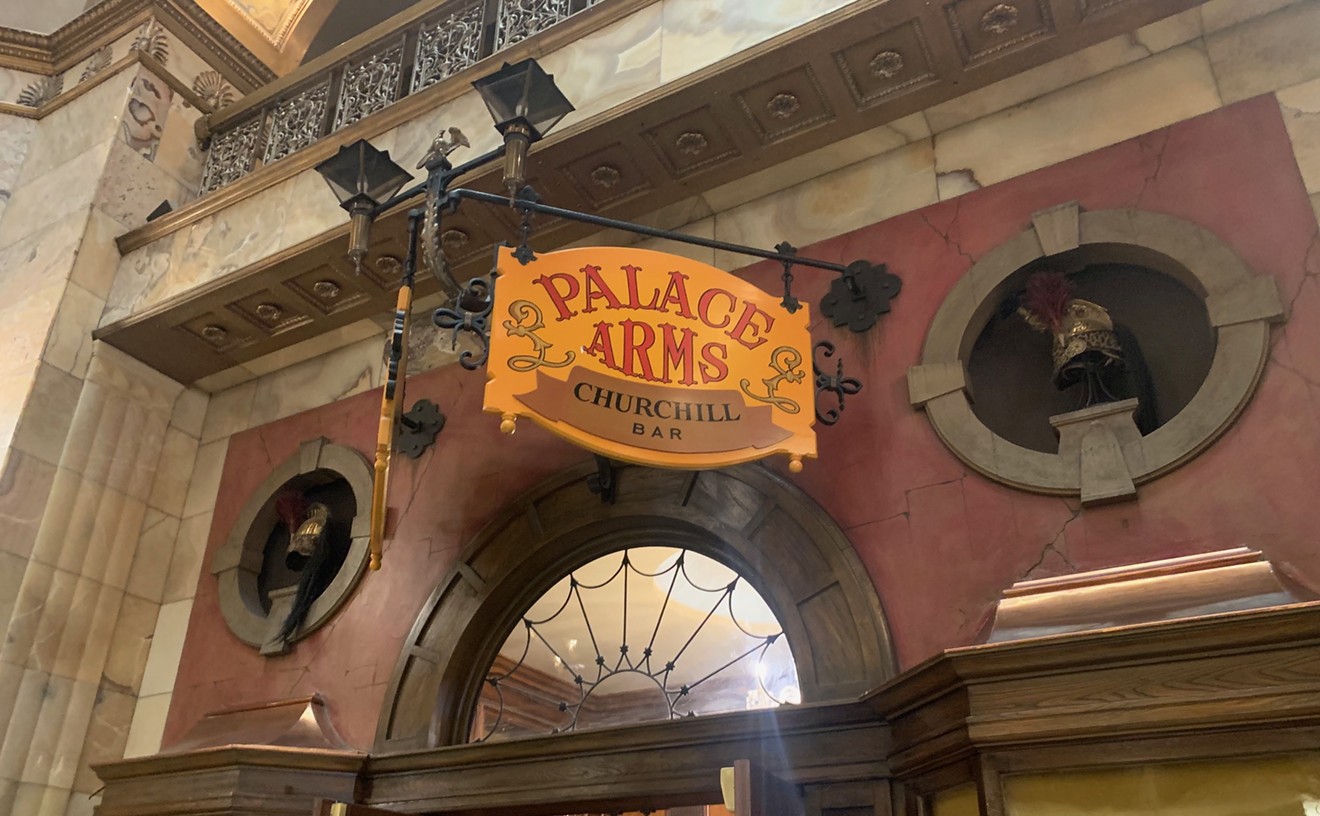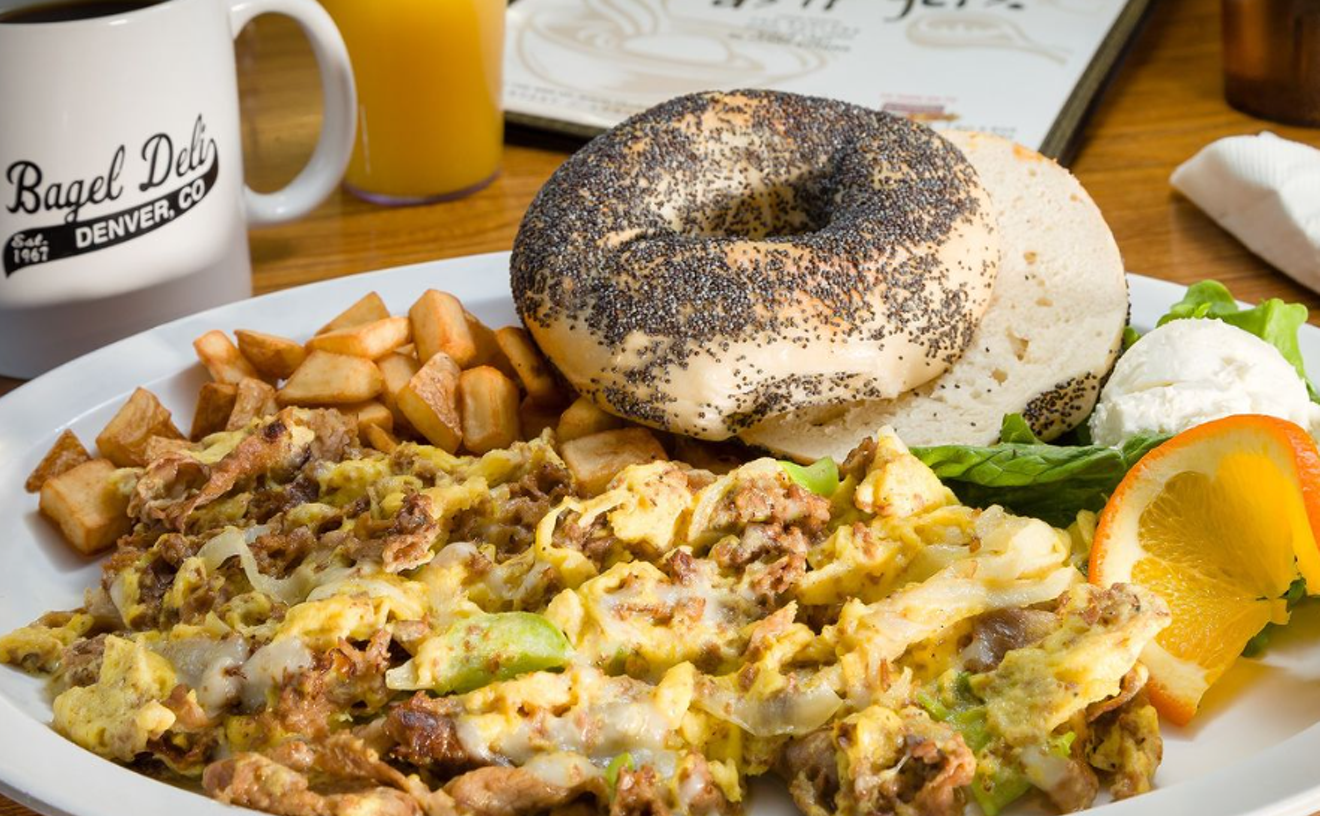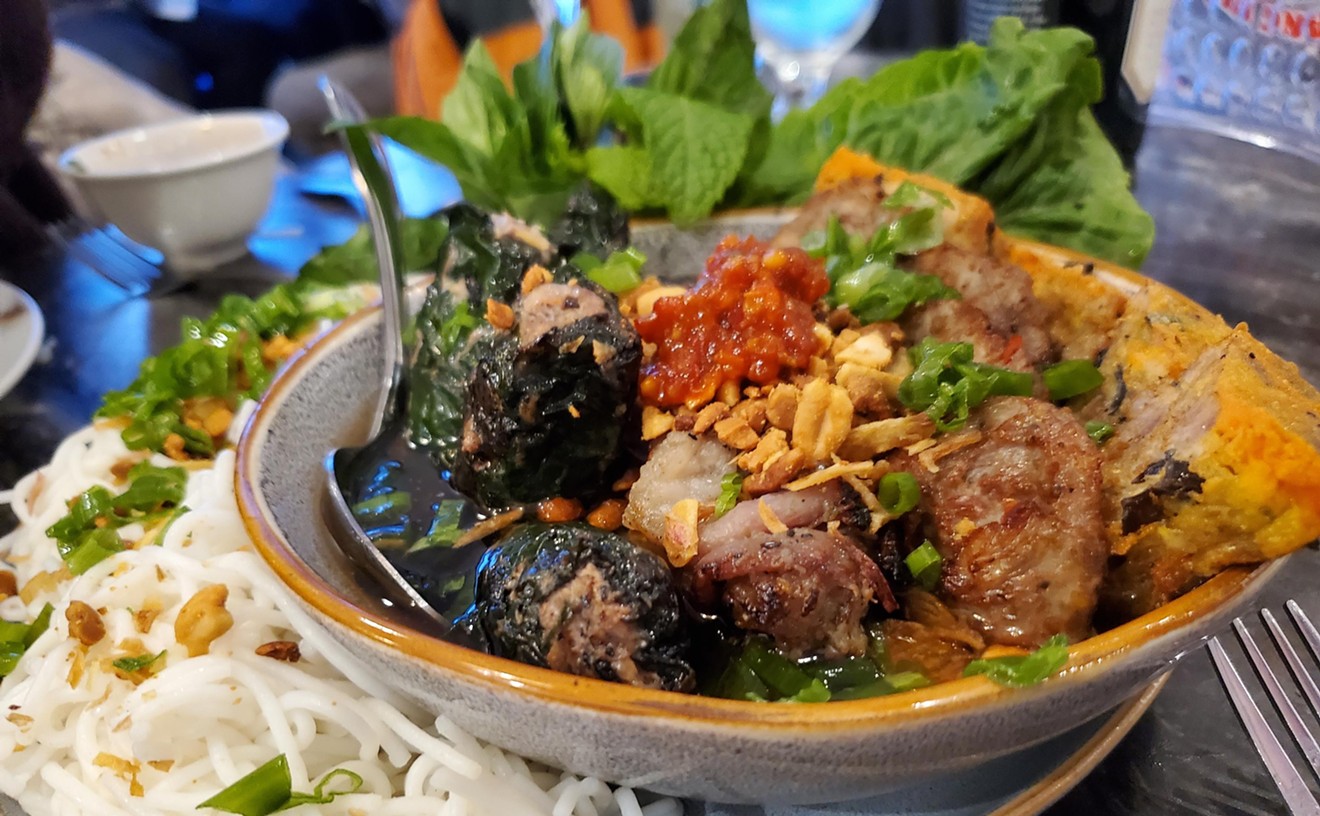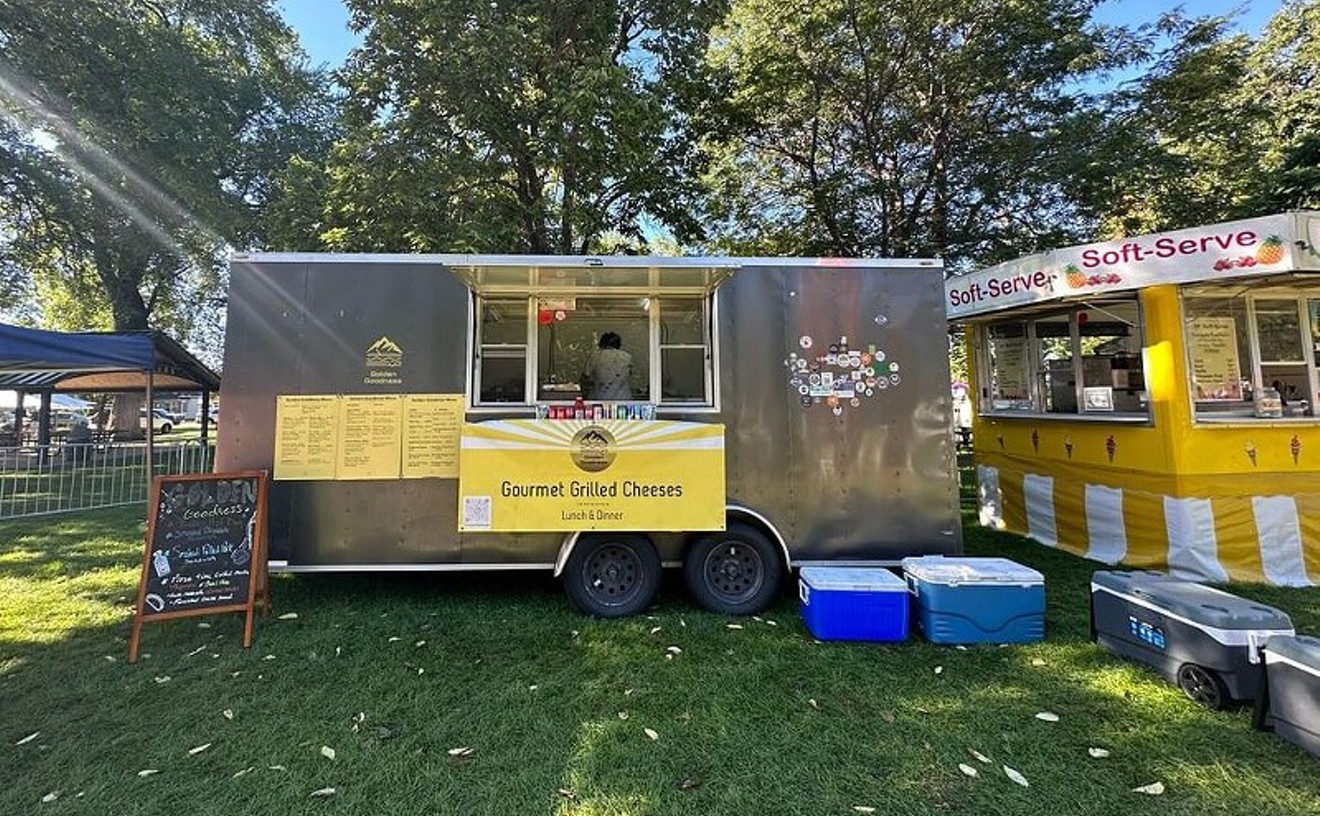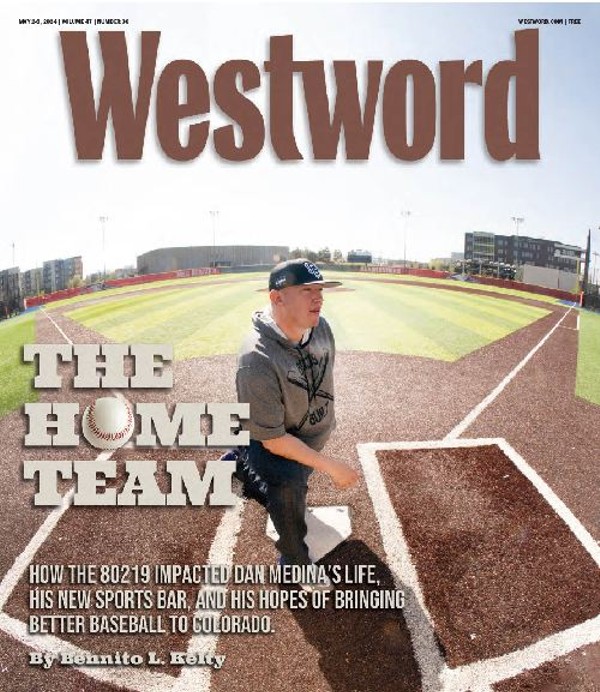When Williams & Graham first slid back the bookshelf that covers the entrance to the bar, it was only the second cocktail bar in Denver, and it came online almost exactly one year after the first: Frank Bonanno’s Green Russell. In the five years since, the city’s cocktail scene has deepened as drinkers have become more knowledgeable, and Williams & Graham has become a beloved Denver cocktail bar with a national reputation for excellence.
On November 20, the bar celebrated its fifth anniversary by parading out many of the bartenders who’ve made the place what it is, welcoming back people like Courtney Wilson, Chad Michael George and Sam Johnson, who has since moved on to work for some of the most famous cocktail bars in New York City. We recently chatted with owner Sean Kenyon about how Denver’s drinking scene has changed, what he thinks it takes to build longevity, and the difference between hospitality and service.
Westword: You just celebrated your five-year anniversary. What does it mean to you to have made it this far?
Sean Kenyon: I think when we first opened, I didn’t even think we were going make it a year. I didn’t know if Denver was ready for us. There was only one cocktail bar here: Green Russell. The only panic attack I’ve had in my life happened the day we were opening. I was picking up booze, thinking, “Our friends and family are going to show up tonight, and a week from now, we’re going to have a ghost town.” I had to pull over and take out a bottle of tequila and take two slugs. That ghost town never happened. I still thought there was a short window for a speakeasy, that within five years it would be done — that we would catch lightning in a bottle and move on. But we’re still growing. We haven’t seen that slowdown. Five years means a ton to me. I learned a lot from [Steuben’s, Vesta and Ace owner] Josh Wolkon and his view on restaurants and their longevity. He’s not building a place to be open a couple of years; he’s building a classic. He always said, always do simple things and do them very well, and grow from there. We just do simple things very well. We’re not making bitters, spirits or doing spherification, but we’re doing a high level of cocktails with really thought-out hospitality.
The cocktail scene has certainly changed in Denver since then. How has your business evolved in the wake of that?
When we first opened, our intention was to push the envelope and do things differently to set ourselves apart. We were busy from the get-go. We were on a wait from the minute we opened the door. We look back at the first year and say, “How the fuck did people love us?” We had this epiphany that there were not enough people doing things fundamentally well. So we said, let’s take these basic cocktails and do them all right, and work within those formulas. We wanted to teach everyone to crawl or walk before we run. We also evolved into a creative environment that’s very supportive. In the first years, I wrote all the menus with Courtney Wilson and Jason Patz. Two years in, I wanted everyone to feel ownership of this menu; I wanted people to feel proud. It’s become more of a collective. Our bartenders feel like they own it. Jason Patz has taken over our menu development, education and training. Williams & Graham doesn’t run without him; he’s our engine. I love that man.
Denver has really elevated its game in drinking, too. How have patrons changed over the course of that time?
Holy shit. Our patron has gone from sort of educated to super-educated. The first couple menus, anything with egg white was the lowest-selling item. Now people come in and ask, “What egg white drinks do you have on the menu?” It’s a complete 180. Cocktail and food writing has become a lot more comprehensive. Food television has changed a lot for us. People see the culinary approach we take to cocktails. They understand more of the ingredients, so we don’t have to explain as much. And people are a lot less intimidated; they were super-intimidated at first. They were intimidated by a large menu, and now they’re excited about it. They’re also a lot younger. We see so many 21st birthdays. You’d think they’d want Jaeger bombs and vodka-Red Bulls, but they’re coming and saying, “I want to start in the right way.”
In the midst of all of this, you opened the Occidental. Tell me a little bit about how that complements what you’ve done with Williams & Graham.
When the guy who owns the building came to us, he came to us to expand Williams & Graham. But we’re happy with the size. We know there’s a wait, and we understand we have to manage that, but the size allows us to make it personal for everyone. We decided to build something that had all the elements of the cocktail bar — education behind the bar, ingredients, knowledge — but had a more colloquial, neighborhood atmosphere. We have TVs and video games, a garage patio door, and light. We wanted to provide something for the neighborhood — and for people too intimidated to come to Williams & Graham. It’s more approachable in every way. It’s part of the community and the neighborhood: This is a place where neighbors can come in and enjoy a cocktail before they go home. They can’t do that at Williams & Graham because of the wait.
You mentioned that at Williams & Graham, you tried to provide a type of hospitality that was missing in Denver. What does that mean, exactly?
Hospitality is all about creating a relationship with every individual guest. There’s no broad blanket; it’s different for every person. It takes a unique person to identify that. When I go into a lot of places here, that personal part is what is missing. Service has gotten a lot better, and by that I mean the steps of service: greeting, giving information, affecting friendliness. But the thing that weaves service and hospitality together is intangible. Genuine-ness can’t be faked. Genuine warmth is lacking in our community. I don’t have it right all the time, but I’d like to see more of that — more taking the service connection and making it personal, so people leave in a better place than they were in when they walked in. Some of that is in vernacular; we need to get rid of certain words — like, “What do you want or need?” I want to satisfy desires; I don’t want to satisfy wants and needs. You desire a cocktail or food experience that’s going to make your day better. If you hire the right people and they get it, it becomes a cult of hospitality. People start to hold everyone accountable.
What’s exciting to you lately in the spirits world, locally or beyond?
I keep going back to all the native spirits that we’re finding out about: pisco, cachaça, tsipouro, which is this Greek spirit that comes out of grape production. Mexican spirits. All the little regional amari. This is what people have been doing in villages for years, and to be able to experience that is a good thing. [Spirits are] a ship in a bottle. Everyone knows vodka, gin, tequila, rum, but they also know that those are just categories, and there’s so much more in each of them: American whiskey and rye whiskey, or cachaça and rhum agricole. There’s more to choose from in every category. That’s exciting. As for the microdistillery movement, it’s not good just because it’s small. This move toward “It’s got to be small to be good” is crazy. There’s crap all over the place in big distilleries, but your chances of getting a great gin from Hendricks, Beefeater or Tanqueray is greater than your chances of getting a great one on the small side.
What’s your take on the crazy growth of the restaurant industry right now?
I’m scared for Denver in a lot of ways. When restaurants are done right, there’s plenty to go around. But we’re seeing a lot of first-timers, and people are in a rush. I hope there aren’t a bunch of shuttered restaurants and bars in a year or so. And I see a lot of inexperienced people directing programs. We’re going fast, and we need to slow down and get our fundamentals right. I would never be upset with someone for taking a job they really wanted, but we need to realize that we’ll end up with a bad product in the end if we don’t hold ourselves accountable. You have to have some self-awareness when you do something; you don’t want to disappoint the people that you’re working with. I worry about the dilution of education. I worry about people putting themselves out there as cocktail visionaries [who] don’t know how to make the 25 essential drinks.
Williams & Graham is located at 3160 Tejon Street, where it's open from 5 p.m. to 1 a.m. daily. Find out more by calling 303-997-8886 or going to williamsandgraham.com.
[
{
"name": "Air - MediumRectangle - Inline Content - Mobile Display Size",
"component": "12017618",
"insertPoint": "2",
"requiredCountToDisplay": "2"
},{
"name": "Editor Picks",
"component": "17242653",
"insertPoint": "4",
"requiredCountToDisplay": "1"
},{
"name": "Inline Links",
"component": "18838239",
"insertPoint": "8th",
"startingPoint": 8,
"requiredCountToDisplay": "7",
"maxInsertions": 25
},{
"name": "Air - MediumRectangle - Combo - Inline Content",
"component": "17261320",
"insertPoint": "8th",
"startingPoint": 8,
"requiredCountToDisplay": "7",
"maxInsertions": 25
},{
"name": "Inline Links",
"component": "18838239",
"insertPoint": "8th",
"startingPoint": 12,
"requiredCountToDisplay": "11",
"maxInsertions": 25
},{
"name": "Air - Leaderboard Tower - Combo - Inline Content",
"component": "17261321",
"insertPoint": "8th",
"startingPoint": 12,
"requiredCountToDisplay": "11",
"maxInsertions": 25
}
]




